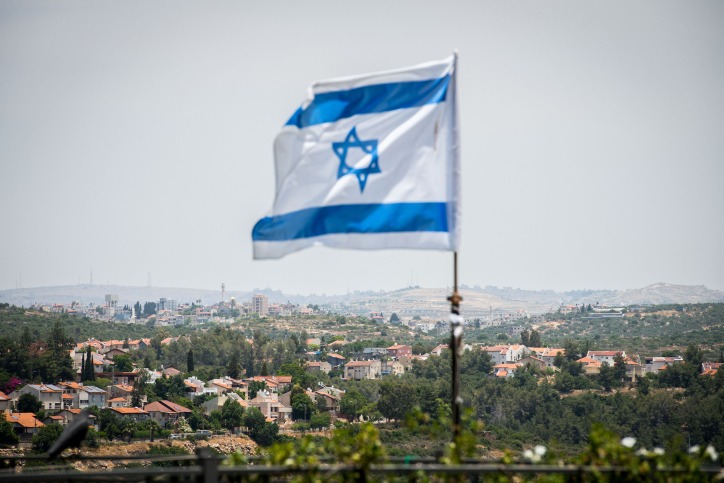An investigation shows that except for one of the seven, previously linked to violent incidents against Arabs, the other six were not known to the Shin Bet and Israel Police.
Ariel Kahana
(JNS)
Three weeks after the U.S. announced sanctions on four Israeli citizens because of “high levels of extremist settler violence,” it turns out that only one of the four is known to the law enforcement authorities in Israel as having problematic conduct, Israel Hayom reported.
It also emerged that of the four Israelis punished by Britain, not a single one is known to the authorities.
In early February, U.S. President Joe Biden issued an unprecedented executive order that led to the designation of four residents of Judea and Samaria as being involved in “high levels of extremist settler violence, forced displacement of people and villages, and property destruction.”
The American president added that he was imposing sanctions on them because the actions “reached intolerable levels and constitute a serious threat to the peace, security, and stability of the West Bank and Gaza, Israel, and the broader Middle East region.”
Britain soon followed suit by taking similar steps, including one (Yinon Levy) who was also part of the U.S. announcement.
As a result of these sanctions, the seven Israelis’ bank accounts were frozen, their assets in the U.S. and Britain were frozen, and they were banned from entering those countries. It should be noted that France also announced the imposition of sanctions against 28 Israelis, but did not publish their names.
An investigation by Israel Hayom shows that except for one of the seven, who was previously linked to violent incidents against Arabs, the other six were not known to the Israel Security Agency (Shin Bet) and Israel Police as having engaged in such conduct.
Moreover, Israel Hayom learned that the Americans and British did not conduct any preliminary checks or consultations with the Israel Police and Shin Bet before imposing the sanctions, even though they have extensive ties with Israel’s security agencies in a very wide range of areas.
Meanwhile, data received by Israel Hayom shows that in the fourth month of the war against Hamas, there was a nearly 50% drop in incidents defined as “extreme violence” by Israelis in Judea and Samaria, a downward trend that has continued since the start of the war on Oct. 7. These figures essentially debunk claims by the U.S. on a supposed surge of settler violence.
According to the data, which has been accepted as authoritative by the Israel Police, IDF, and Shin Bet, there were 244 incidents defined as terrorism, violent friction, attacks, and agricultural sabotage since the start of the war, compared to 475 such incidents in the corresponding period a year earlier.
In addition, during the months of the war, there has not been a single incident in Judea and Samaria defined as a “severe attack” carried out by an Israeli, in contrast to four such incidents in the equivalent period.
The data also shows that the authorities in Judea and Samaria are carrying out significant enforcement operations to curb any such incidents. Since the outbreak of the war, 315 cases related to friction incidents between anarchists and Arab residents and Jewish settlers have been opened, 17 suspects were arrested, four of whom have been held pending the outcome of their prosecution, and 15 indictments were filed.
A senior police official told Israel Hayom: “Our actions are based on facts and data, not stories. Anyone who breaks the law is dealt with. Period. There is excellent cooperation between the IDF, Shin Bet, and the police, and there is no dispute over the data. We do know that many incidents actually start with provocations by leftists and anarchists, so these data do not necessarily tell the whole story and do not mean the blame lies specifically on the settler side.”
Originally published by Israel Hayom.
Image: The Jewish town of Karnei Shomron in Judea and Samaria, on June 4, 2020. Photo by Sraya Diamant/Flash90.



